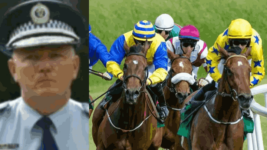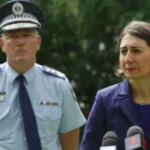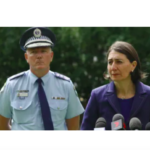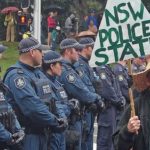Mick Fuller’s Failure to Disclose Horse Ownership Amounted to Wrongdoing, Police Watchdog Finds

Former NSW police commissioner Mick Fuller announced in February this year that following his resignation from the position of top cop the month prior, he was amongst the frontrunners for a seat on the board of Racing NSW.
But the ABC put an end to this ambition, as it then revealed that Fuller had failed to disclose his part ownership in two racehorses whilst holding senior NSW police positions, despite it being mandatory for officers above the rank of superintendent to report potential conflicts of interest annually.
Fuller had a 5 percent share in Mad Magic over 2015 to 2017, and, whilst he was holding the top position in the NSW Police Force, he had a stake in Once Epona Time between 2019 and 2020. Yet, the ex-cop failed to give notice about these potential conflicts of interest until 2021.
The state’s independent police watchdog, the Law Enforcement Conduct Commission (LECC), went on to carry out an independent investigation into the matter, which found last March that Fuller had not committed any wrongdoing in relation to his failure to disclose horse ownership.
However, the LECC released a supplementary report on 13 December, in which it reversed its initial position on Fuller, finding that he had stepped over the line when he didn’t disclose his part ownership in the second horse until after he no longer held it and this constituted wrongdoing.
Conflicts of interest
The watchdog reopened its investigation, known as Operation Kurumba, after the ABC contacted the LECC inspector in July raising concerns about a number of aspects of the original report.
In particular, the broadcaster asserted the finding of no misconduct seemed at odds with the fact that the NSW Police Force Code of Conduct and Ethics requires senior NSW police officers to declare conflicts of interest annually, and Fuller failed to do this over the years 2018 through to 2020.
This was further queried as the NSWPF Procedures for Managing Conflicts of Interest outline that such conflicts can include actual, perceived or potential conflicts of interest, and the part ownership in the horse must have appeared to at least potentially be an issue.
The LECC found that Fuller’s connection to racehorses commenced in 2012, when he formed a group known as the Punter’s Club with school friends. This involved part ownership in some horses, prior to the forming of a broader syndicate, which saw 14 people having a share in Mad Magic.
But the conflict of interest potentially arises when he entered into another syndicate comprising of 17 individuals in part ownership of Once Epona Time in 2019. This was well after Fuller, who held a 2 percent ownership of the horse, had been appointed police commissioner in March 2017.
The racing industry is considered high risk in regard to conflicts of interests and, therefore, a venture into it warrants a greater level of scrutiny, the LECC outlines, and when it comes to a senior officer, consideration of a conflict includes whether they’ve put the entire NSWPF’s reputation at risk.
“Having regard to the evidence of Mr Fuller’s ownership of racehorses,” the report goes on, “the commission finds that he should have completed declarations which disclosed his ownership of racehorses based upon a perceived or potential conflict of interest.”
A ban on horse ownership
In finding that Fuller had committed wrongdoing, the LECC then considered whether this warranted misconduct. And as it had concluded that Fuller didn’t try to hide his horse ownership, but rather he didn’t consider he was obliged to reveal it, the watchdog found no actual misconduct had occurred.
And amongst a number of recommendations it made, the independent police watchdog suggested that current NSW police commissioner Karen Webb consider whether it would be advantageous if a prohibition is placed upon all NSWPF officers of any rank having ownership in a racehorse.







